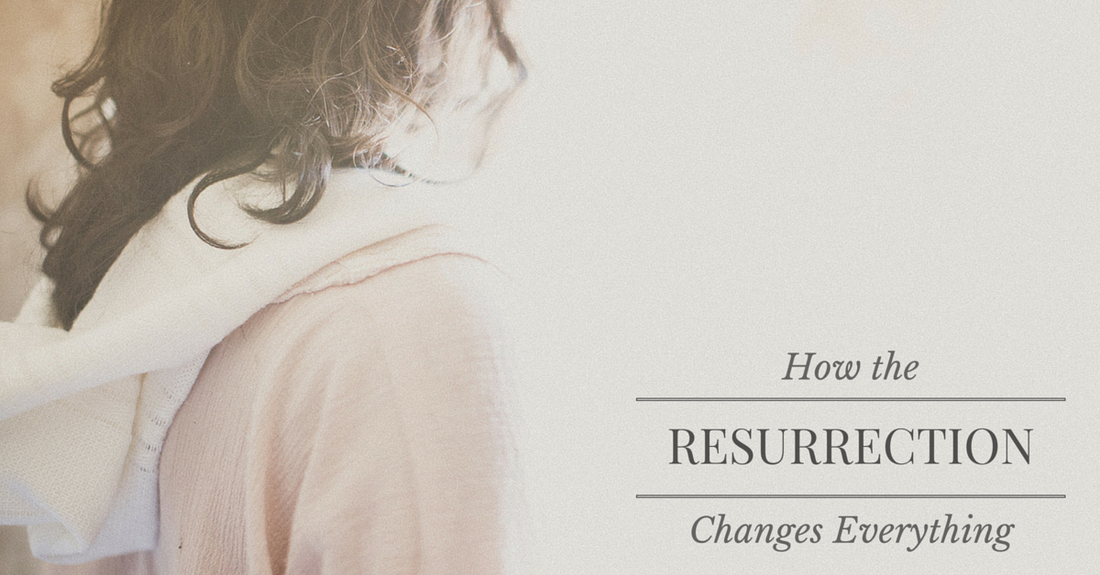What is your perception of God?When we talk about God, we often start by describing Him in vague terms. Our perception can easily mutate into a caricature contrary to who God really is. Many people view Him as a mean, distant figure—a deity who is only concerned with creatures who act moral, and who has no vested interest in connecting personally and lovingly with them. In the book, Let's Start with Jesus, Dennis Kinlaw notes that: "Most of the gods that so-called unbelievers reject have never had any objective reality and are simply the goblin constructions of their own minds...The god before whom the sincere believer bows likewise may be a caricature that does little justice to the reality one believes oneself to be worshipping." In reality, God is love. He is transcendent but He is also personal. This is most vividly presented in the New Testament in the person of Jesus Christ. God cares about us immensely. He is the Creator of the universe, yet His eye is on the sparrow: "Are not two sparrows sold for a penny? Yet not one of them will fall to the ground outside your Father’s care. And even the very hairs of your head are all numbered. So don’t be afraid; you are worth more than many sparrows." --Matthew 10:29-31 (NIV) Sometimes false perceptions of who God really is can cloud our perspective. God is not an abusive father and He is not distant. He is everlasting perfect love and wants to be in fellowship with every single one of His children. Love and FearFear and love are opposites. In fact, scripture says: "There is no fear in love. But perfect love drives out fear, because fear has to do with punishment. The one who fears is not made perfect in love."(1 John 4:18) This is true from a spiritual level, but also a physiological level. The amygdala is the part of the brain that senses fear. We also have another part of the brain that helps regulate that fear called the anterior cingulate cortex, or ACC for short. A fascinating study showed that meditating on a God of love helps people manage and diminish fear and anxiety: "Dr. Newberg at the University of Pennsylvania has shown that when individuals aged 60 to 65 meditated 12 minutes a day for 30 days on a God of love, they experience growth in the ACC as measured by MRI brain scans, reductions in heart rate and blood pressure, and improvement in memory testing. Meditating on any other God concept, such as an angry, wrathful, distant, or punitive god did not result in these positive outcomes" (Timothy Jennings, The Popular Encyclopedia of Christian Counseling). If you are struggling with anxiety, reach out to God. Connect with Him through prayer and meditation on His Word and His character: "Cast all your anxiety on him because he cares for you" (1 Peter 5:7) God loves you unconditionally and has His best in mind for you. Will you trust Him today? Subscribe to My Newsletter
Spring, and especially Easter, is my favorite time of year. It reminds me of the resurrection and the fact that all things are being restored for God’s glory. It makes me think of this verse: “Even in laughter the heart is sad, and the end of joy is grief.” —Proverbs 14:13 Huh? How encouraging. How does this remind me of Easter? It is a vivid reminder that all good things in this life end. We are all faced with the irreversible and inevitable fact that death is around the corner. Tim Keller comments on this verse saying: Here’s the happy family, sitting around the dining room table. And the simple reality is that…one of those people is eventually going to see every other member dead. Death ends everything. Everything your heart wants out of life eventually will be taken away from you. Deep down we all know this is true and this is a big reason we have a hard time truly living in the moment, even when everything seems to be going well. Sin is the cause of death, but because of Christ’s sacrifice on the cross, sin (and death itself) has been defeated. God is actively seeking to reconcile all people and the creation to Himself. In his book, Miracles, C.S. Lewis notes: The New Testament writers speak as if Christ’s achievement in rising from the dead was the first event of its kind in the whole history of the universe. He is the “first fruits,” the “pioneer of life.” He has forced open a door that has been locked since the death of the first man. He has met, fought, and beaten the King of Death. Everything is different because He has done so. This is the beginning of the New Creation: a new chapter in cosmic history has opened. All are invited into the New Creation, but it has to be chosen. God won’t force anyone’s hand. When we accept Him, we too become a new creation—transformed more and more into the image of Jesus Himself. What does the proverb at the beginning have to do with the New Creation? Well it’s still true of this life, but there is now a different perspective. Death is no longer eternal for the believer, but is simply a portal to the next world, a New Creation that will prove to be a deeper, truer reality. Bad things still happen in this life, but not without access to the transformation, peace, and joy Christ gives—the very thing that will strengthen and fill you up for when the bad things happen. What’s holding you back from trusting Christ? Subscribe to My Newsletter
I tried something scary a while ago. I removed the internet browser, email, and Facebook app from my phone. It was hard to do at first—but actually enjoyed it. I no longer had as many incessant notifications begging to get my attention, and my daily commute was much more peaceful. Why was it so hard to do in the first place? We live in a culture that is addicted to distraction. Along with food, drugs, and alcohol, we’ve added smartphones to the arsenal of things we use to numb negative emotions. We use cellphones like a drug. We don’t want to feel. Where we are headed. The book Fahrenheit 451 by Ray Bradbury describes a future dystopia where books are banned and even confiscated and burned. The protagonist, Guy Montag, burns books for a living. His wife stays at home and is obsessed with technology. She spends hours watching “interactive television” and has a mini radio always blaring in her ear. The book was written in 1953, but details like this are strikingly prophetic. Media theorist, Neil Postman, notes that Aldous Huxley’s Brave New World predicted that our society would eventually arrive at this place: “In Huxley's vision, no Big Brother is required to deprive people of their autonomy, maturity and history. As he saw it, people will come to love their oppression, to adore the technologies that undo their capacities to think.” Be watchful. This world is temporary but it's easy to get caught up in the distraction. Jesus warns us about this when He says: "Be careful, or your hearts will be weighed down with carousing, drunkenness and the anxieties of life, and that day will close on you suddenly like a trap. For it will come on all those who live on the face of the whole earth. Be always on the watch, and pray that you may be able to escape all that is about to happen, and that you may be able to stand before the Son of Man.” (Luke 21:34-36) What does it mean to "be always on the watch?" It entails communing with God on a regular basis. I'm not completely against entertainment, but we can easily get lost in it. Spending hours on Facebook and binging on Netflix may keep you occupied, but it certainly won't feed your soul. We have to be disciplined enough to carve out time with God. Create space for God. When I say create space, I literally mean setting aside a physical place where you can be with God. I have the privilege of having a spare bedroom in my home. It sat vacant for several months until I had the idea of making it into a prayer room. The only rule is that technology is not allowed there. It really helps me shift into the right mindset as soon as I enter. When I was in seminary, I didn't have a spare bedroom, but I had a chair that I only sat in while reading my bible and praying. If you are having trouble setting aside time with God, I challenge you to do the same. You may not have an extra room, but try setting aside a corner of your house meant just for prayer—set aside a holy place. It never ceases to amaze me that on the days when I pray, I find myself less anxious, less stressed, and more content with what God has for me in the current season of my life. Subscribe to My Newsletter
I work with a lot of people who struggle with self-esteem, and many lack a sense of purpose for their lives. Even after fully surrendering themselves to God, another part of them still struggles with completely believing that God loves them or that God is for them. God is not distant. Satan wants to distract believers from the reality of God's love. He wants to convince them that God doesn't really care about them, that He still will punish them, or that He will change His mind and go back on His promises. Scripture often uses the imagery of adoption to show how God really views believers: "So you have not received a spirit that makes you fearful slaves. Instead, you received God’s Spirit when he adopted you as his own children. Now we call him, 'Abba, Father.'" (Romans 8:15, NLT) A pretty accurate translation of Abba is "Daddy." This indicates a very close, intimate relationship. When you put your faith in Christ, you are adopted as a child of God. I really like how Charles Spurgeon explains it when he says: "He who counts the stars, and calls them by their names, is in no danger of forgetting His own children. He knows you as thoroughly as if you were the only creature He ever made, or the only saint He ever loved!" Embracing your true identity. The statement below (in bold) is an affirmation I use to teach others who are struggling with self-esteem or a deep-seated belief that God is not really for them. I encourage you to write it out and place it in a location where you see it daily, either on your bathroom mirror, in your car, or in your Bible: God loves and accepts me unconditionally the way I am right now, therefore I accept myself unconditionally the way I am right now. It's interesting that John, who wrote several books of the Bible, and who was Jesus' youngest disciple, refers to himself as “the disciple that Jesus loved” or the “Beloved Disciple.” It is clear that He rooted his whole identity in Christ. In our modern world, many people link their identity to their job. In fact, it’s the first thing people ask after learning your name. We can often hitch our self-worth to our productivity and base our identity on what we do. But whenever we root our identity in anything other than God, it is idolatry. It is God who created us—only He can define us. There are even good things we can try to base our lives on: our job, our relationships, our family, and even ministry itself! John doesn’t do this. He doesn't just call himself a disciple, but “the disciple that Jesus loved.” His identity was not rooted in Himself but in God. I challenge you to memorize and quote the affirmation listed above whenever you feel defeated. Your feelings and mood may shift day to day, but God's heart toward you will never change. Subscribe to My Newsletter
|
Article Topics
All
Archives
July 2023
|
We're ready to help. Let's connect.
You can contact us several different ways:
Call UsWe return every call:
(480)525-7284 ext.0 |
Text UsJust a quick question?
Send Us a Text Message |
Email UsWe'll get in touch soon:
Send Us an Email |
Schedule NowReady to get started?
Book an Appointment |
Peoria LocationInside State Farm
9299 W Olive Ave Ste 212 Peoria AZ 85345 |
Phoenix LocationInside CrossRoads UMC
7901 N Central Ave Phoenix AZ 85020 |
AboutContact |
Services |
PodcastsAsk a Christian Counselor
Listen to Podcast Featured Episodes All Episodes Spiritual Care Today Listen to Podcast Journal of Pastoral Care Publications Education |
© 2023 Prism Counseling & Coaching. All Rights Reserved.
Christian DISC® is a registered trademark of Prism Counseling & Coaching.
Christian DISC® is a registered trademark of Prism Counseling & Coaching.












